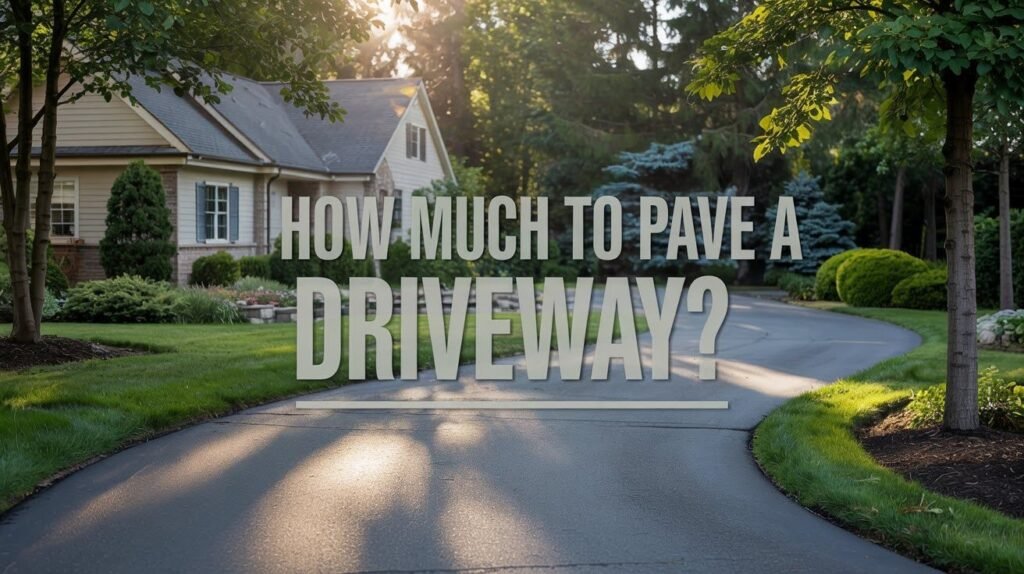Your driveway makes the first impression on visitors. A well-paved surface adds value to your home and makes daily life easier.
But here’s the thing. Paving costs change dramatically based on what you choose.
Size matters. So does your location. The material you pick can double or triple your budget.
I’ve seen homeowners spend $2,000 on a simple gravel drive. Others invest $15,000 in premium pavers.
That’s a huge gap.
Most people underestimate the total project cost. They focus only on materials and forget about site prep, labor, and permits. These “hidden” expenses can add 30-50% to your initial estimate.
This post breaks down every factor that affects your final bill. You’ll learn exactly what drives costs up or down. By the end, you’ll know how to budget smartly and avoid costly surprises.
No guesswork. Just real numbers.
Average Cost to Pave a Driveway
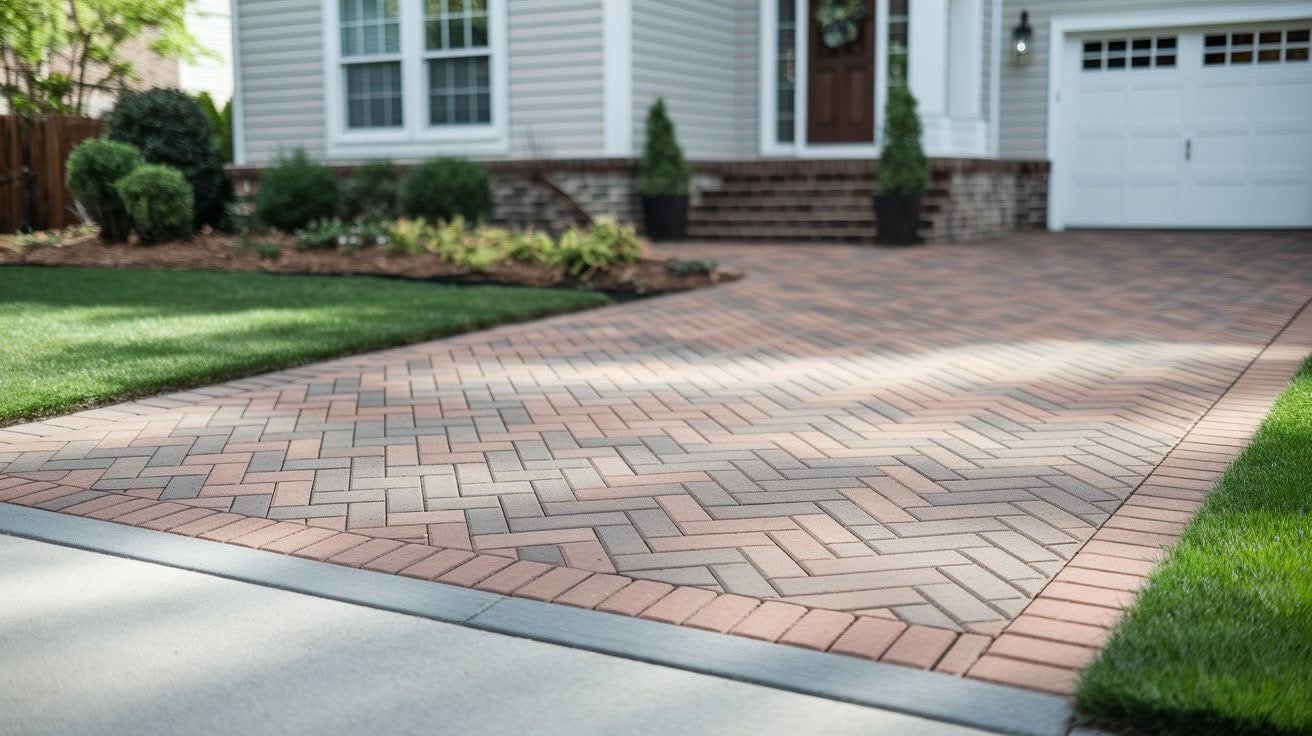
Most homeowners spend between $4,000 and $8,000 to pave their driveway. That’s the national average in the U.S.
Cost per square foot ranges from $3 to $15. The wide range depends on your material choice.
Here’s what you can expect for common sizes:
- Single-car driveway (10×20 feet): $600 to $3,000
- Double-car driveway (20×20 feet): $1,200 to $6,000
- Large driveway (24×24 feet): $1,728 to $8,640
These numbers include basic installation. Complex shapes or premium materials cost more.
Your location affects pricing, too. Urban areas typically run 20-30% higher than rural zones.
Driveway Paving Cost by Material Type
Asphalt
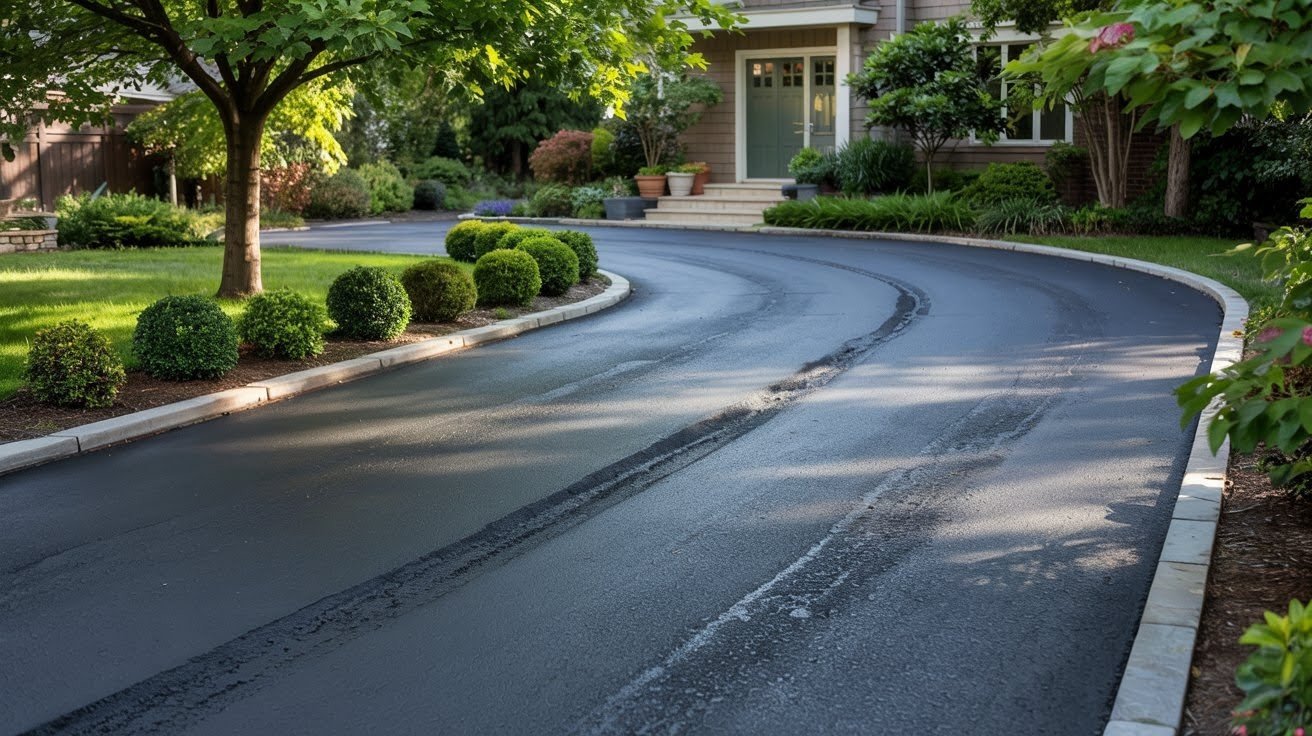
Asphalt costs $3 to $7 per square foot. It’s the most popular choice for good reason.
This material handles weather changes well. Hot summers and cold winters don’t crack it easily. Installation is fast. Most driveways finish in 1-2 days.
Maintenance is simple. Sealcoating every 3-5 years keeps it looking fresh. Limited color options. You get black or dark gray.
Lifespan: 15-20 years with proper care.
Concrete
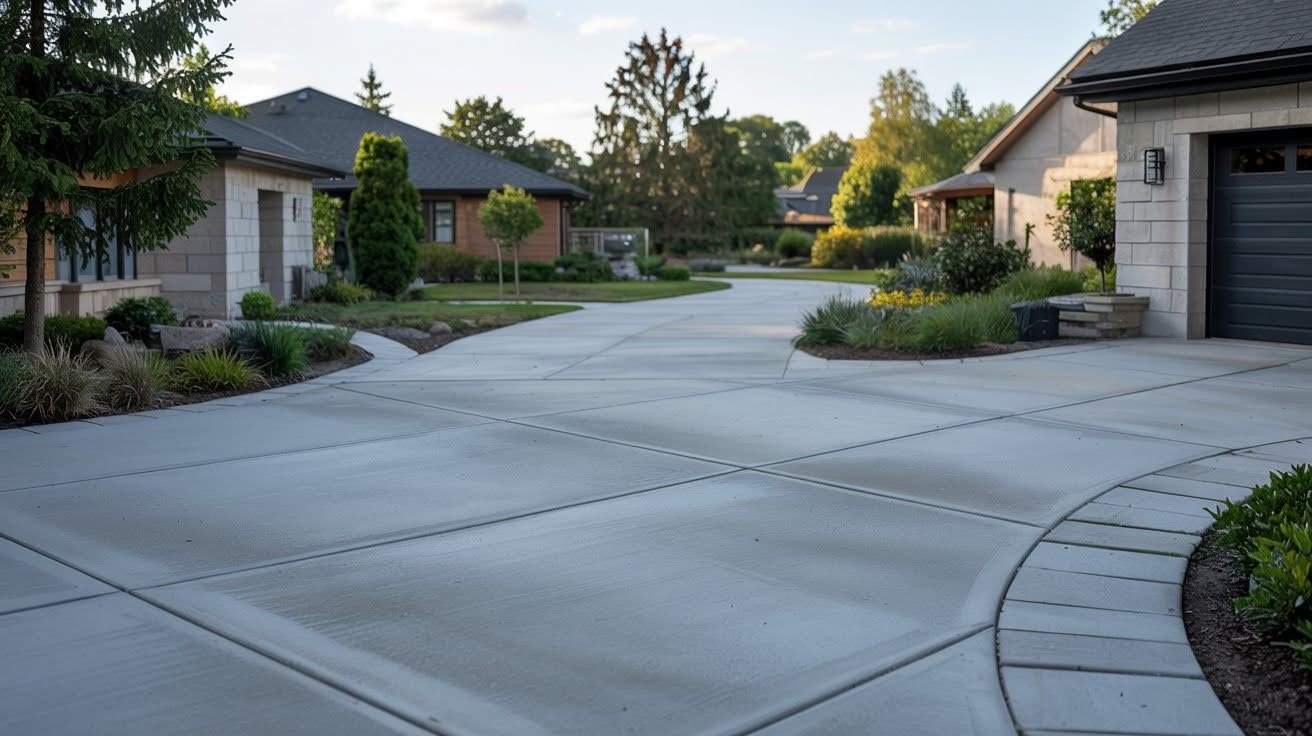
Concrete runs $6 to $15 per square foot. Higher upfront cost, but it lasts longer. This material offers design flexibility. You can add colors, patterns, or stamps.
It handles heavy loads without damage. Perfect for RVs or work trucks. Concrete reflects heat better than asphalt. Your driveway stays cooler in summer.
Repairs are expensive. Cracks need professional fixes.
Lifespan: 25-30 years.
Gravel
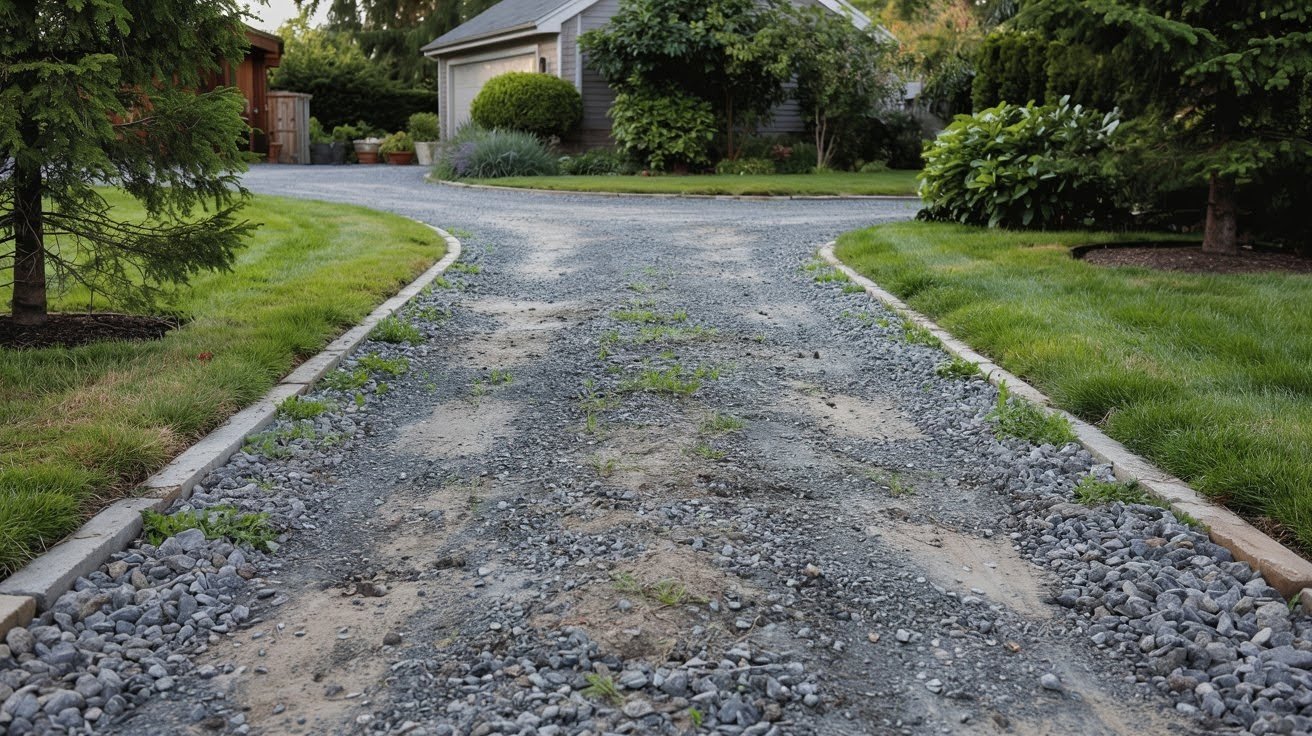
Gravel is the budget option at $1 to $3 per square foot. Rural homeowners love this choice.
Installation is straightforward. Spread, compact, and you’re done. Drainage is excellent. Water flows through instead of pooling.
Maintenance is ongoing. You’ll need to add fresh gravel every few years. Snow plowing can scatter stones. Spring cleanup is required.
Lifespan: 10+ years with regular maintenance.
Pavers or Brick
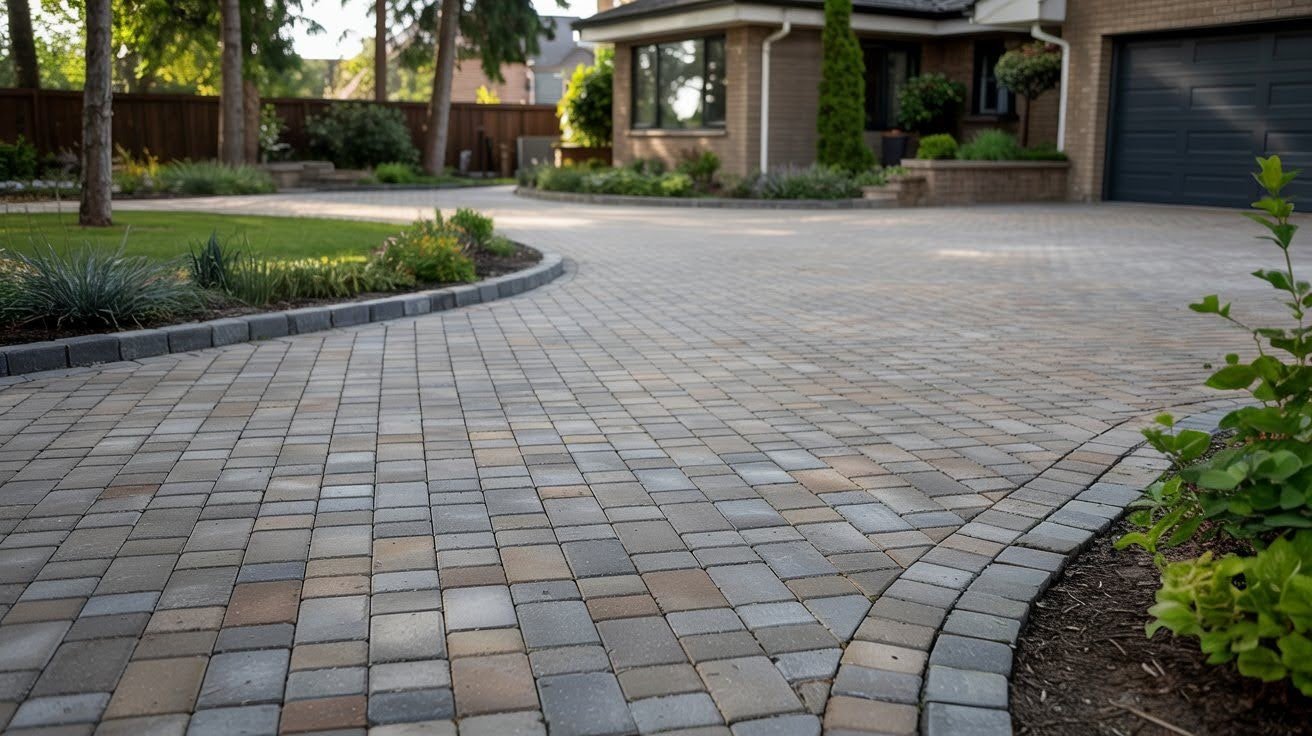
Pavers cost $10 to $30 per square foot. This is the premium option. Design possibilities are endless. Mix colors, patterns, and sizes.
Repairs are simple. Replace individual pavers instead of whole sections. Property value increases significantly with quality paver installation.
The investment is substantial. Labor costs double due to detailed work.
Lifespan: 25-50 years.
Resin, Tar-and-Chip, or Other Alternatives
Tar-and-chip costs $2 to $4 per square foot. It combines asphalt benefits with gravel texture. Resin-bound surfaces run $8 to $12 per square foot. They offer permeability and modern looks.
Recycled materials can reduce costs by 15-25%. Check local availability. Permeable options help with drainage requirements in some areas.
Additional Factors That Affect Cost
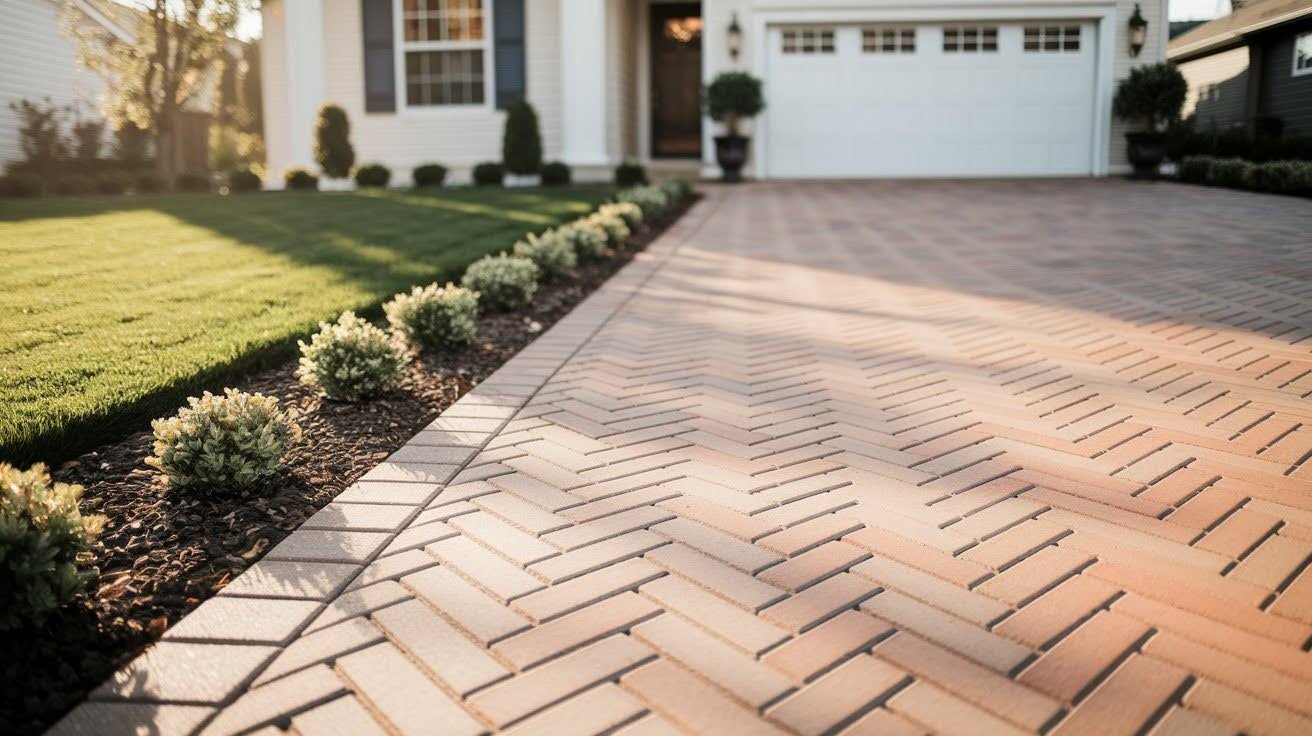
Driveway Size and Shape
Straight driveways cost less per square foot. Simple rectangles are most economical.
Circular drives look impressive but require more material and labor. Curved designs add 20-30% to your total cost.
Width matters too. Standard single-car drives are 10-12 feet wide. Go wider, and costs increase proportionally.
Site Preparation
Your ground conditions determine prep costs. Level lots need minimal work. Sloped or uneven areas require extensive preparation.
Excavation costs $2 to $4 per square foot. Rocky soil increases this by 50%. Drainage corrections add $1,000 to $3,000 to your project.
Tree removal runs $500 to $2,000 per tree, depending on size.
Poor soil conditions might need stabilization. This can add $2 to $5 per square foot.
Labor Costs
Regional differences are significant. Northeast and West Coast areas run 25-40% higher than national averages.
Rural areas typically cost less due to lower overhead. Contractor experience affects pricing. Established companies charge premium rates but deliver quality work.
DIY can save 30-50% on labor. But mistakes are expensive to fix.
Permits and Local Fees
Most municipalities require permits for driveway work. Permit costs range from $50 to $300. Urban areas typically charge more.
Some locations require engineering plans for drainage or slope issues. Utility marking is usually free but takes 2-3 days to complete.
Check setback requirements. Your driveway might need a specific distance from property lines.
Long-Term Costs and Maintenance
Maintenance costs vary by material choice. Asphalt needs sealcoating every 3-5 years at $0.50 to $1.00 per square foot.
Concrete requires less frequent attention, but crack repairs cost $300 to $800 per incident. Gravel needs fresh material every 2-3 years. Budget $500 to $1,200 for reapplication.
Pavers might need re-leveling every 10-15 years at $2 to $4 per square foot. Annual cleaning and minor repairs typically cost $200 to $500, regardless of material.
Factor these ongoing expenses into your total ownership cost.
Tips to Save Money on Driveway Paving
- Get quotes from at least three contractors
- Schedule work in the fall or early spring for better rates
- Handle site clearing yourself if you have the tools
- Choose standard materials over custom options
- Consider partial DIY for simple prep work
- Buy materials during off-season sales
- Combine projects with neighbors for bulk discounts
- Skip decorative features initially – add them later
DIY vs Hiring a Professional
DIY paving involves significant physical work and specialized tools. Gravel driveways are most DIY-friendly. Rent a compactor and take your time.
Asphalt requires hot material and fast installation. This usually needs professional equipment. Concrete offers a middle ground. Small sections can be manageable for experienced DIYers.
Pavers are labor-intensive but don’t require special timing or equipment. Consider your skill level honestly. Poor installation creates expensive problems later.
Hire professionals for:
- Drainage issues
- Steep slopes
- Large areas
- Complex shapes
- Concrete or asphalt work
Conclusion
Driveway paving costs depend on your specific situation and choices. Materials range from $1 per square foot for gravel to $30 for premium pavers.
Most projects fall between $4,000 and $8,000. But your actual cost depends on size, materials, and local labor rates.
Smart planning saves money. Get multiple quotes and consider long-term maintenance costs. Don’t rush this decision. Your driveway will serve you for decades.
Start by measuring your space. Then, research local contractors and material suppliers.
The right choice balances your budget with your home’s needs. Take time to make an informed decision. Your future self will thank you for the careful planning.
Frequently Asked Questions
How long does it take to pave a driveway?
Most driveways take 2-5 days to complete. Asphalt finishes fastest at 1-2 days. Concrete needs 3-7 days, including cure time. Pavers take the longest due to detailed installation work. Weather affects timing. Rain delays all projects.
Can I drive on my new driveway immediately?
No, you need to wait. Asphalt requires 24-48 hours before light traffic. Concrete needs 7 days for full strength. Gravel and pavers are ready immediately after installation. Heavy vehicles should wait longer.
How do I maintain my paved driveway?
Regular cleaning prevents stains and damage. Sweep debris monthly and pressure wash annually. Asphalt needs sealcoating every 3-5 years. Fill small cracks quickly to prevent water damage. Concrete benefits from annual sealing.
What permits do I need for driveway paving?
Most areas require building permits for new driveways. Replacement projects might not need permits if you’re using the same footprint. Check with your local building department. Permit costs range from $50 to $300, depending on your location and project size.
Is it cheaper to repair or replace my existing driveway?
Repair costs 30-50% less than full replacement. But extensive damage makes replacement more cost-effective long-term. Consider replacement if damage covers more than 30% of your driveway surface.


